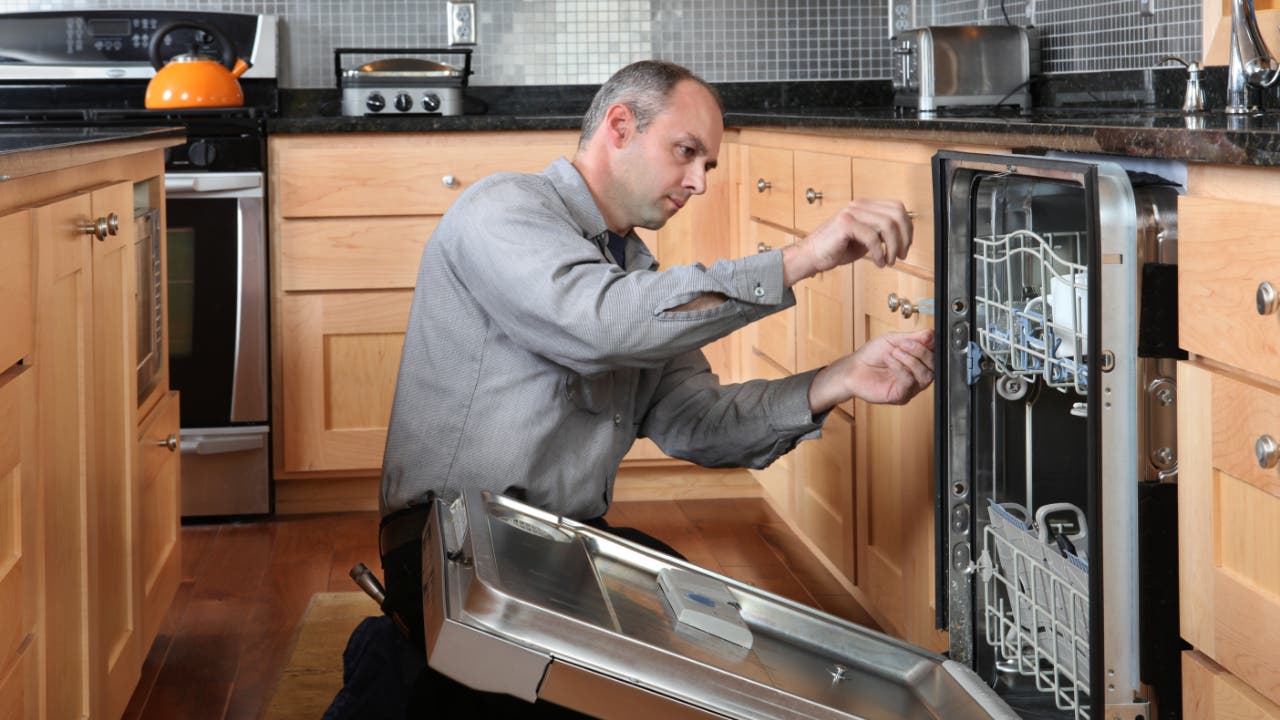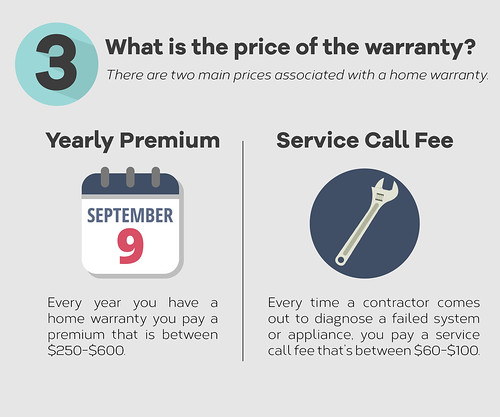15 Up-and-Coming Trends About equity home warranty
If you plan to remodel the kitchen and replace all appliances within a year of purchasing your house, a house warranty might be a waste of cash. If you choose that the protection just isn't worth the expense, you might think about boosting your emergency fund or setting up a separate savings fund to pay for repair work or replacements out of pocket.
The surprise component of owning a house is that anything in it may break for any number of reasons-- and home guarantees exist to provide some comfort and a quick option when repairs are required. The fundamental property is that, for an upfront annual cost, a home guarantee covers the repair work or replacement of covered house systems and home appliances that break due to normal wear and tear.
Home enhancement platform Patio published a study revealing that the approximated typical expense each year of home maintenance ranges from $14,890 to $18,151, so a service contract that covers lots of medium-expensive home maintenance requires is interesting brand-new house owners. In a new building and construction house, or a house where one homeowner is an expert at Do It Yourself repair work, house service warranties may get little to no use.
A house service warranty is a year-to-year service contract that assists cover the expense of fixing (and sometimes changing) different home appliances and systems in your house in case they break or are rendered unusable due to use and tear. Home service warranties have differing levels of coverage, but at any level, they are not a replacement for house owners insurance coverage.


The more costly levels of home guarantees likewise look after the replacement of covered items if repair work is not possible. Every house warranty supplier uses different levels of rates and protection. Some only cover significant home appliances; others just cover systems. Some service providers provide a build-your-own home service warranty where buyers can pick their covered items.
The more expensive levels of house service warranties likewise usually have greater limits and can have lower deductibles. A home warranty is a one- to s3.amazonaws.com/cch-dallas/select-home-warranty-coppell-tx.html two-year service agreement that covers numerous home appliances and systems, and includes a choice to renew. A manufacturer's service warranty covers a specific device from the time of purchase/installation to a set expiration date.
Usually property owners insurance coverage has exclusions relating to wear and tear-- unless the products were damaged by some event that homeowners policy would cover. For instance: If a pipe bursts, causing water damage to your refrigerator motor, your homeowners insurance coverage would cover it. A house service warranty would not. But if your refrigerator just stopped working independent of any other larger occurrence due to a parts malfunction, the house warranty would cover it.
It's not a topic that requires to be dealt with before you close. Typically speaking, a home guarantee covers the mechanical parts of systems like A/C, plumbing, and electrical systems. House service warranties that cover devices normally consist of the dishwasher, washer/dryer, fridge, and oven. Extra choices or higher levels of coverage might consist of air conditioning, pool and health club equipment, septic pump, hot water heater, and fans.
In some cases, the replacement alternative is just readily available in higher-priced home service warranty coverage levels. A house guarantee won't cover damage brought on by water, fire, or catastrophes that might be covered by house owners insurance. If a fire takes place in your kitchen, the guarantee will not cover resulting damages. Cosmetic and fixture repair work, including light bulbs and batteries, are not covered in house guarantees.
Regular seasonal upkeep is not covered. The structural elements of a home are likewise not covered. Premium or alternative home systems or devices, such as a solar panel system or a steam oven, are typically not covered. The meanings of "correctly kept" are arguable, and records of service might be asked for before the house warranty business covers particular claims.
A house guarantee company can send repairmen in their network sometimes in a row to attempt to repair a covered product before replacing it. Many house guarantees will refuse to cover products that are over a particular age-- i.e., ten years. In intricate home systems, a house guarantee frequently covers only certain parts, but not the whole system.
If you have an interruption that breaks the whole system, however just blockages are covered, the service warranty may fix the interruption however not cover the cost of fixing all the issues triggered by the stoppage. The simpleness of reporting an issue to a home warranty service provider is a large part of the appeal for lots of clients.

Within a fixed quantity of time, the business will send out a licensed tradesperson in its network to evaluate the problem. In many cases, the home warranty business will then contract and spend for the suitable repair service-- although the house owner will most likely be responsible for a copay or deductible.
15 Most Underrated Skills That'll Make You a Rockstar in the how much does a home warranty cost Industry
If you intend to redesign the kitchen area and replace all devices within a year of purchasing your home, a home service warranty might be a waste of cash. If you decide that the coverage simply isn't worth the cost, you might think about enhancing your emergency situation fund or establishing a separate cost savings fund to spend for repairs or replacements expense.
The surprise component of owning a home is that anything in it may break for any number of reasons-- s3.amazonaws.com/cch-dallas/select-home-warranty-coppell-tx.html and house warranties exist to provide some comfort and a fast solution when repairs are required. The fundamental premise is that, for an upfront yearly charge, a home guarantee covers the repair work or replacement of covered house systems and devices that break due to regular wear and tear.
House improvement platform Porch published a research study revealing that the estimated average cost each year of home maintenance ranges from $14,890 to $18,151, so a service agreement that covers numerous medium-expensive home upkeep requires is attracting new homeowners. In a new building and construction home, or a home where one local is a specialist at DIY repairs, house warranties may get little to no use.
A house guarantee is a year-to-year service contract that assists cover the expense of fixing (and in some cases changing) different appliances and systems in the house in case they break or are rendered unusable due to use and tear. House guarantees have varying levels of protection, however at any level, they are not a replacement for house owners insurance.
The more pricey levels of house guarantees also look after the replacement of covered products if repair is not possible. Every house service warranty company offers various levels of rates and coverage. Some only cover major home appliances; others just cover systems. Some suppliers use a build-your-own home warranty where buyers can pick their covered items.

The more pricey levels of home guarantees also typically have higher limitations and can have lower deductibles. A house warranty is a one- to two-year service contract that covers a number of appliances and systems, and features a choice to restore. A manufacturer's guarantee covers a particular device from the time of purchase/installation to a set expiration date.

Normally house owners insurance coverage has exclusions relating to wear and tear-- unless the products were damaged by some event that house owners policy would cover. For instance: If a pipeline bursts, triggering water damage to your refrigerator motor, your house owners insurance coverage would cover it. A home guarantee wouldn't. However if your fridge just quit working independent of any other larger incident due to a parts breakdown, the home warranty would cover it.
It's not a subject that requires to be addressed prior to you close. Normally speaking, a house guarantee covers the mechanical components of systems like HVAC, plumbing, and electrical systems. House service warranties that cover devices usually include the dishwashing machine, washer/dryer, fridge, and oven. Additional options or higher levels of coverage may consist of air conditioning, swimming pool and medspa equipment, septic pump, hot water heater, and fans.
Sometimes, the replacement option is just offered in higher-priced house warranty coverage levels. A house warranty will not cover damage brought on by water, fire, or catastrophes that might be covered by property owners insurance coverage. If a fire occurs in your cooking area, the guarantee won't cover resulting damages. Cosmetic and component repairs, including light bulbs and batteries, are not covered in home warranties.
Routine seasonal upkeep is not covered. The structural parts of a home are also not covered. Premium or alternative house systems or home appliances, such as a solar panel system or a steam oven, are generally not covered. The meanings of "properly preserved" are debatable, and records of service may be asked for prior to the home service warranty business covers certain claims.
A house service warranty business can send technicians in their network sometimes in a row to attempt to fix a covered product before changing it. Many home service warranties will decline to cover products that are over a specific age-- i.e., ten years. In intricate home systems, a house warranty frequently covers only certain components, however not the entire system.
If you have an interruption that breaks the whole system, however just stoppages are covered, the service warranty might repair the stoppage however not cover the expense of fixing all the issues triggered by the interruption. The simplicity of reporting a problem to a home warranty provider is a big part of the appeal for lots of consumers.
Within an established quantity of time, the business will send a licensed tradesperson in its network to assess the problem. In most cases, the home service warranty company will then contract and spend for the suitable repair work service-- although the property owner will probably be accountable for a copay or deductible.

